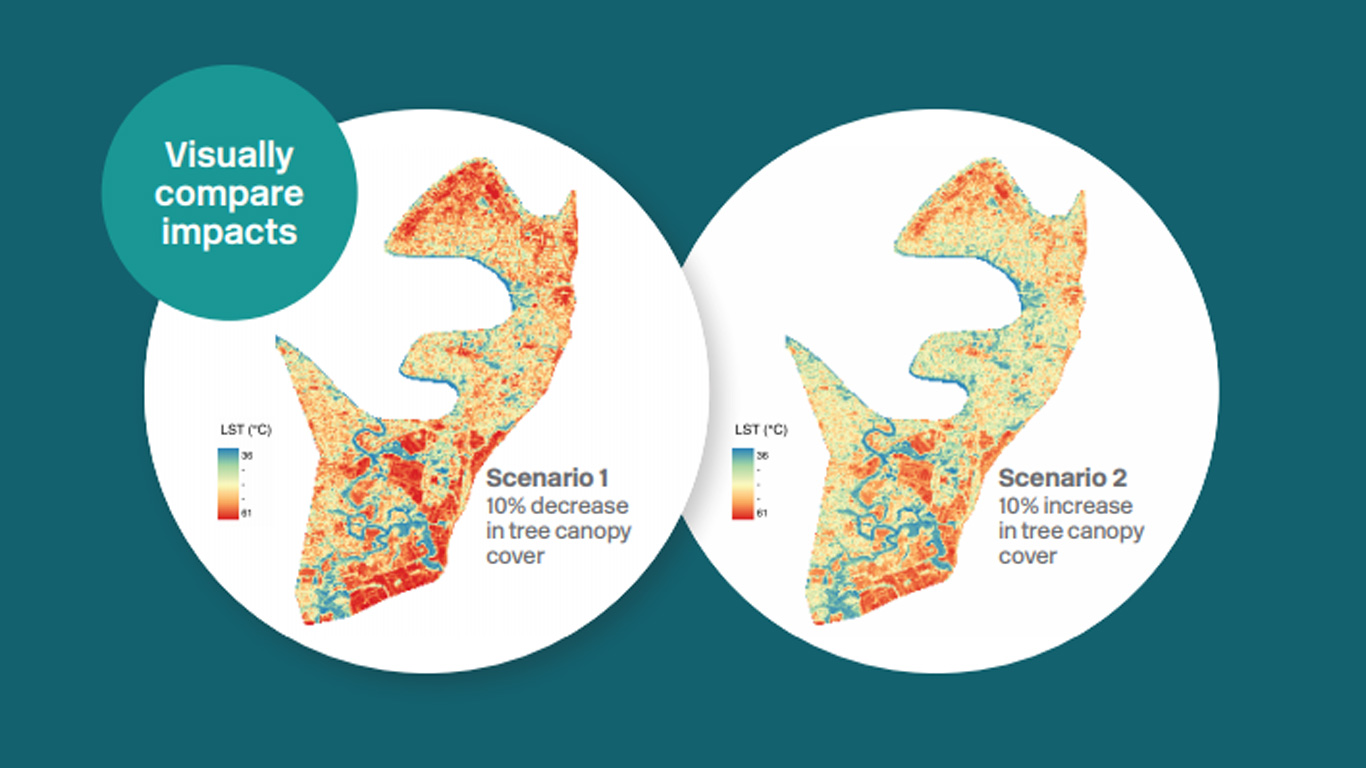A closer look at our Tools and Products program
The CRCWSC will end its term in June 2021. Here, we cover some of the popular tools in our Tools and Products program to show you what’s available to help on your journey to becoming a water sensitive city. These tools will remain on our legacy Knowledge Platform, which we will release at our 5th and final Water Sensitive Cities Conference in March 2021.
WSC Scenario Tool
Our Participants are trialling the recently released beta version of the WSC Scenario Tool and we’re also using it in our integrated case studies. We’ve included infographics and addressed feedback to significantly improve the user experience, and we’re pleased to report access to the tool has doubled since we integrated the urban water cycle module.
The beta WSC Scenario Tool now comprises four rigorously tested analytical modules integrated within a powerful online geospatial modelling environment:

A recent survey of Participants who attended training in the WSC Scenario Tool indicates they overwhelmingly agree that the tool's key usefulness is informing the development of strategies, programs and planning codes. They also said it is useful for ‘communication of heat/water data in a simple format’ and for ‘understanding how catchments work’.
Comprehensive trials of the WSC Scenario Tool are underway, including as part of Brisbane City Council’s Norman Creek case study, DevelopmentWA’s Knutsford case study, and the Townsville and Salisbury integrated case studies. These case studies showcase not only the potential of the WSC Scenario Tool but a range of other CRCWSC tools such as INFFEWS. We will present the CRCWSC integrated case studies during the 5th WSC Conference.
We recently met with our champions of the WSC Scenario Tool for their input into the industry roll out of the final version. A strong community of practice is forming among our Participant organisations, and several SME partners are building capacity in applying the tool and will be able to offer commercial services including training workshops. Please direct commercial enquires to Malcolm Eadie at malcolm.eadie@monash.edu.
The WSC Index – new version released
The CRCWSC’s WSC Index is spreading to an international market! After the successful WSC Index workshop for Cape Town, South Africa, we offered training to some international providers. Despite the COVID-19 difficulties, our Australian Index Providers managed to run several workshops this year, adapting to an online delivery format as needed.
We released version 3 of the WSC Index, with the following key improvements:
- better filtering including states and cities
- option to download data to Excel
- option to download radial bar diagram (water sensitive city states)
- inclusion of assessment data to the projects
- overall stability improvements
Transition Dynamics Framework and the Management Actions Tool
In the second half of 2020, we developed two new online tools to further support benchmarking or visioning workshop processes.
- The Transition Dynamics Framework (TDF) is now an online tool helping users to develop a high-level transition strategy by understanding the current enabling conditions and resources of their organisation.
- The Management Actions Tool aims to support city comparison, diagnostic strategy setting, and prioritisation based on the WSC Index. It links to a management actions database, which allows practitioners to specify management actions that facilitate water sensitive futures.
An expert users group is presently testing these interconnected tools and we will release the beta versions in January 2021. We’ll also run some training on the tools after their release. We’ll provide more information about the training early in the new year.
More information
If you would like to know more, please visit the TAP website or contact Christian Urich at christian.urich@monash.edu or Katie Hammer at katie.hammer@monash.edu.